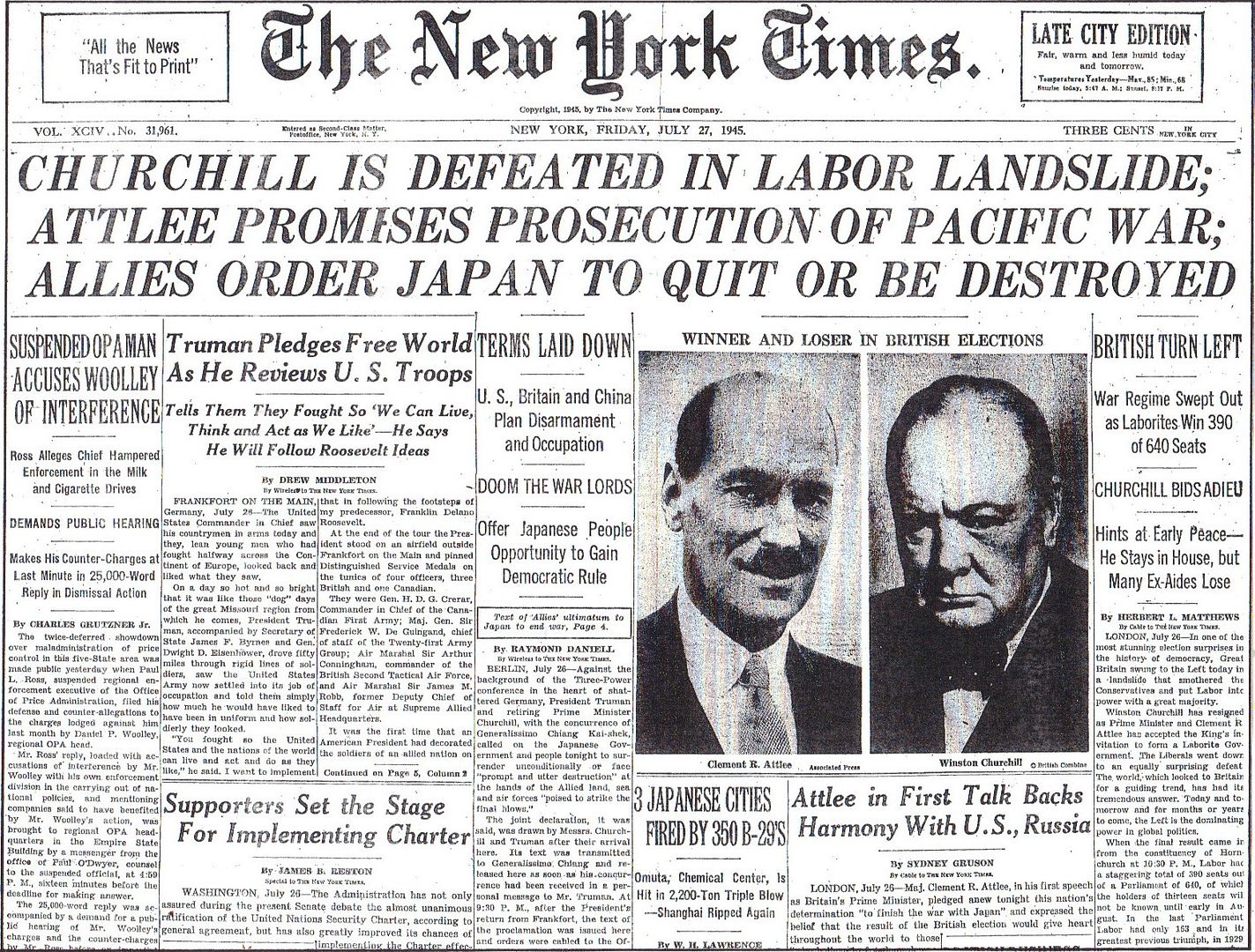
Posted on 07/27/2015 4:41:37 AM PDT by Homer_J_Simpson

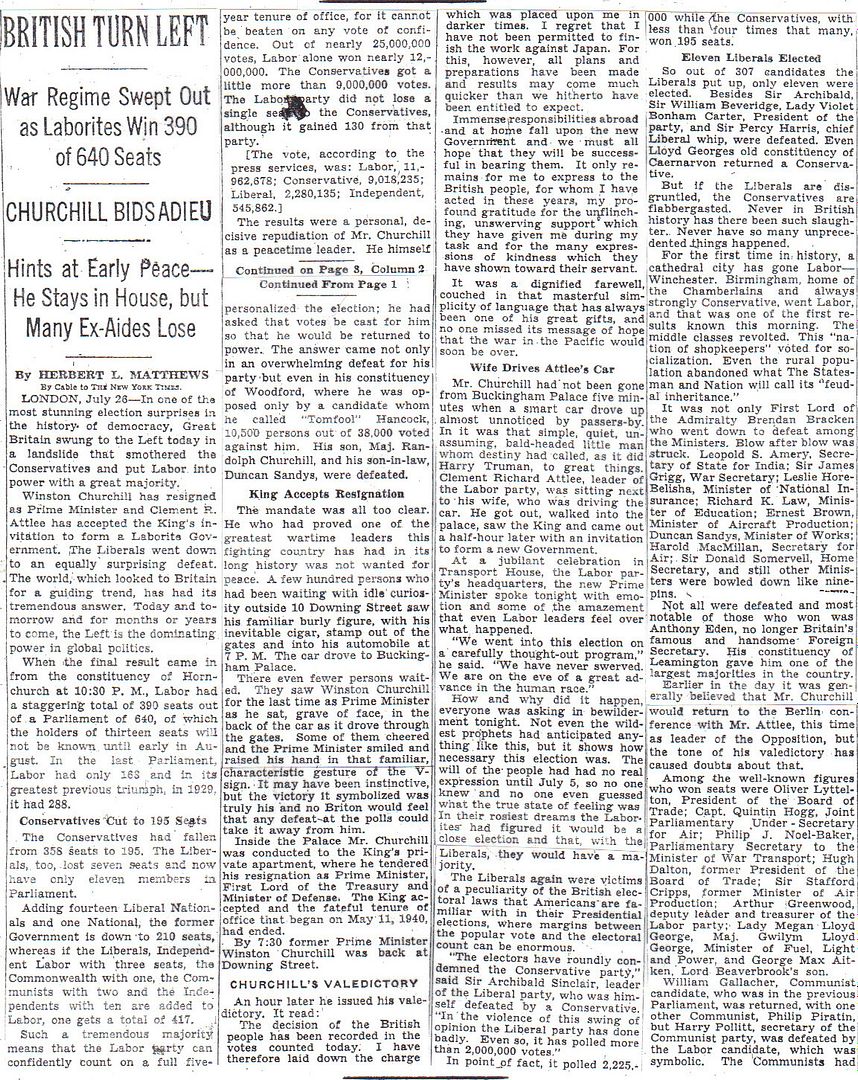
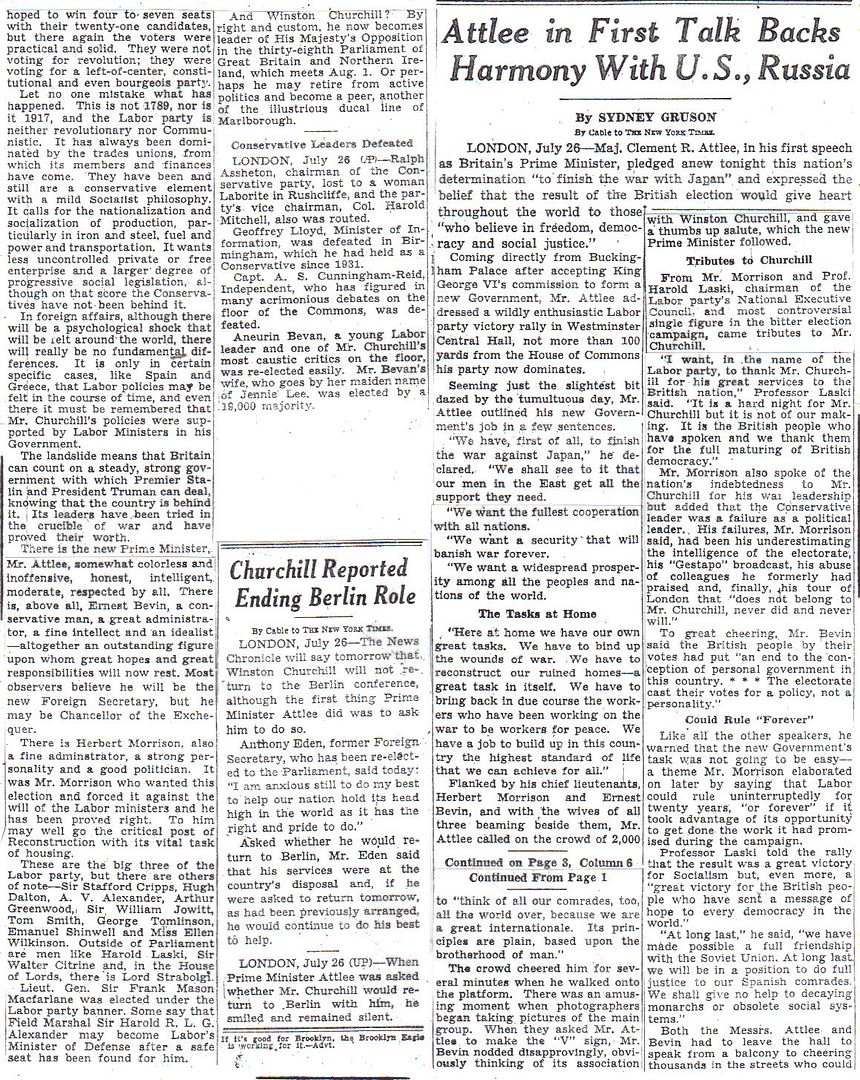
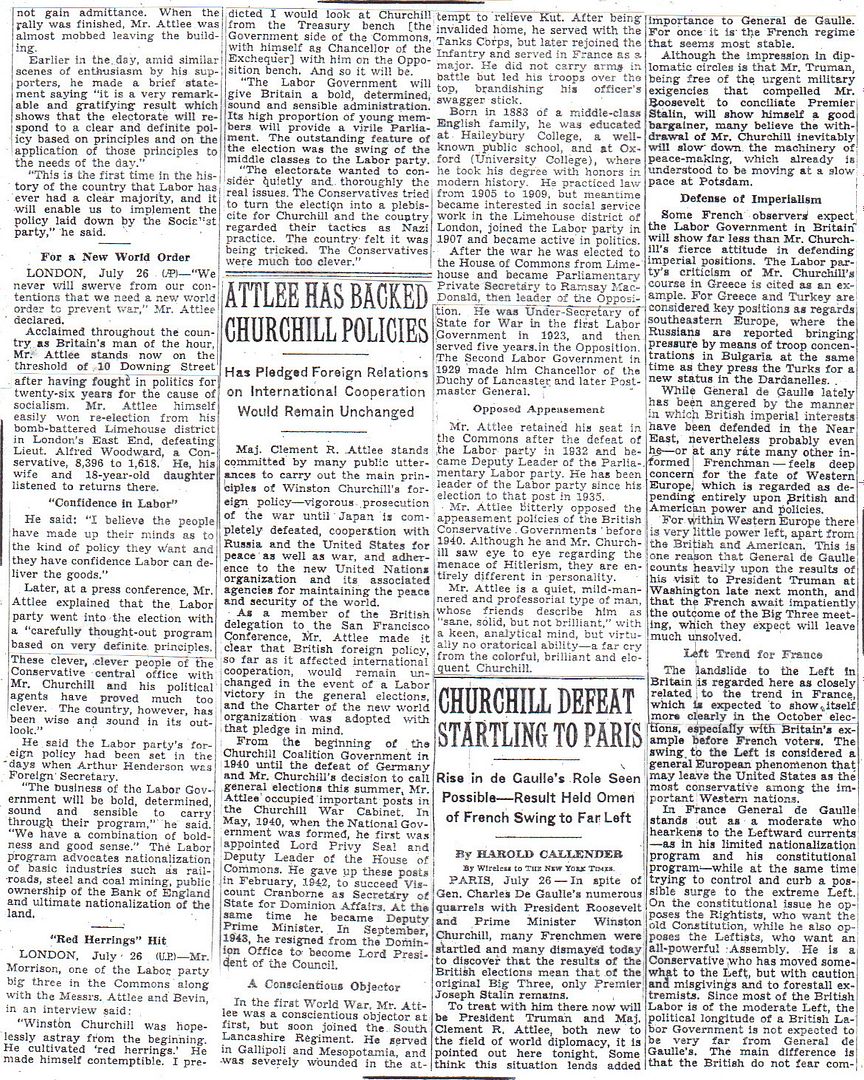
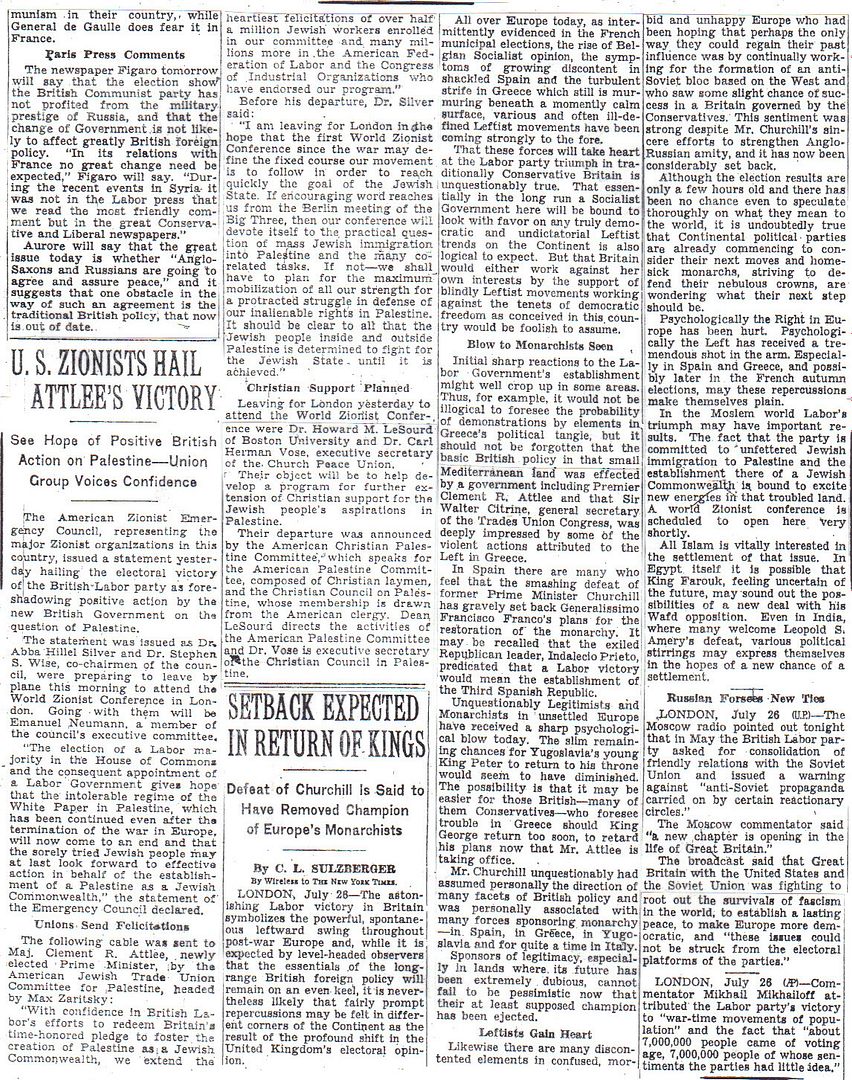
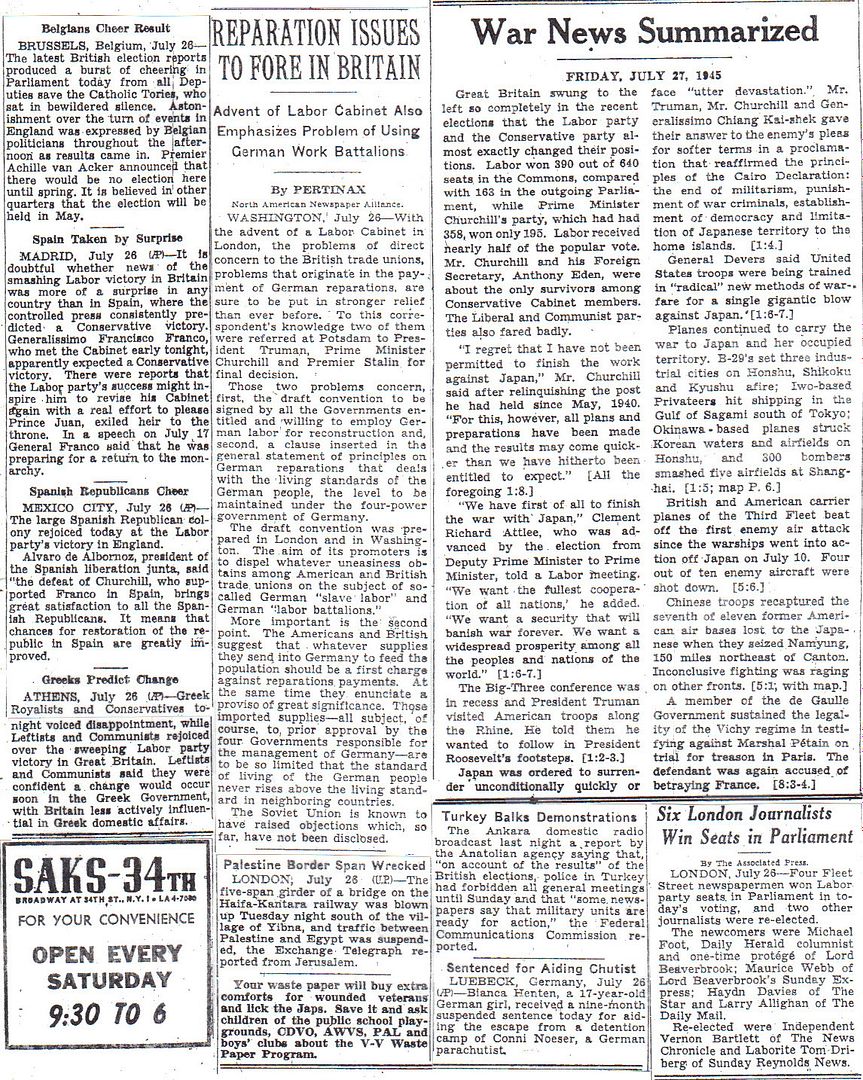
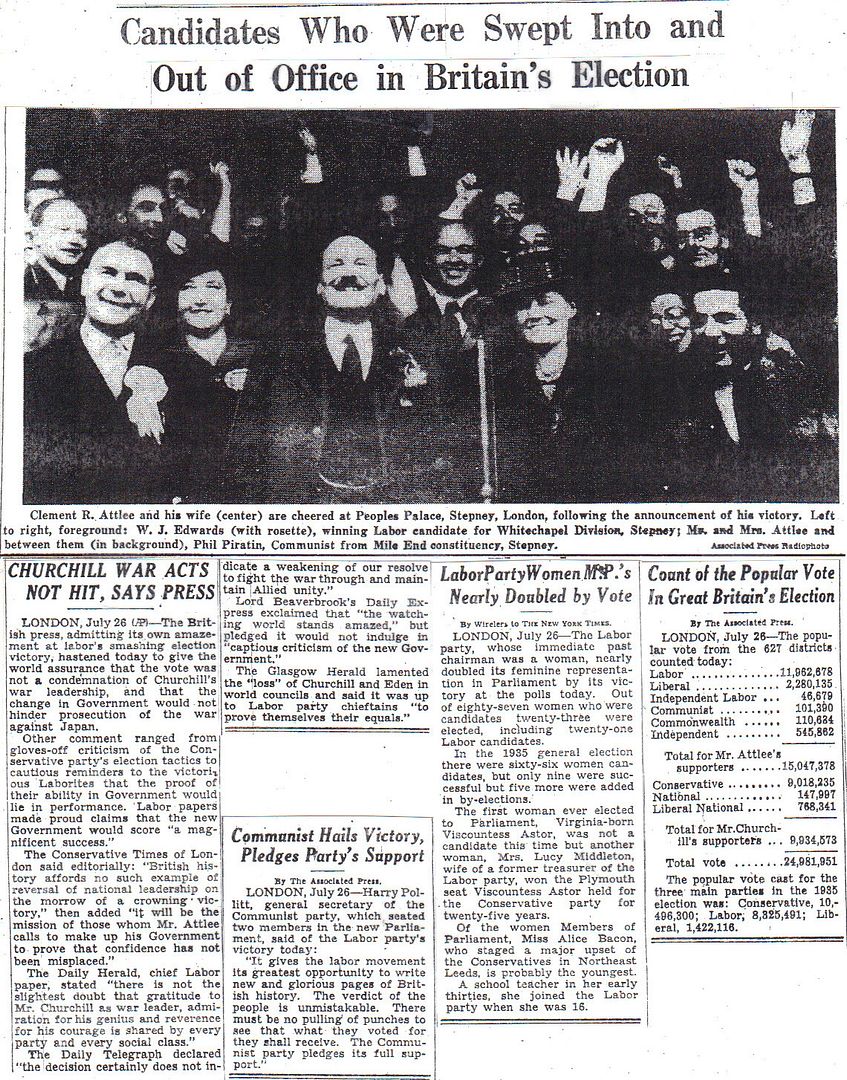
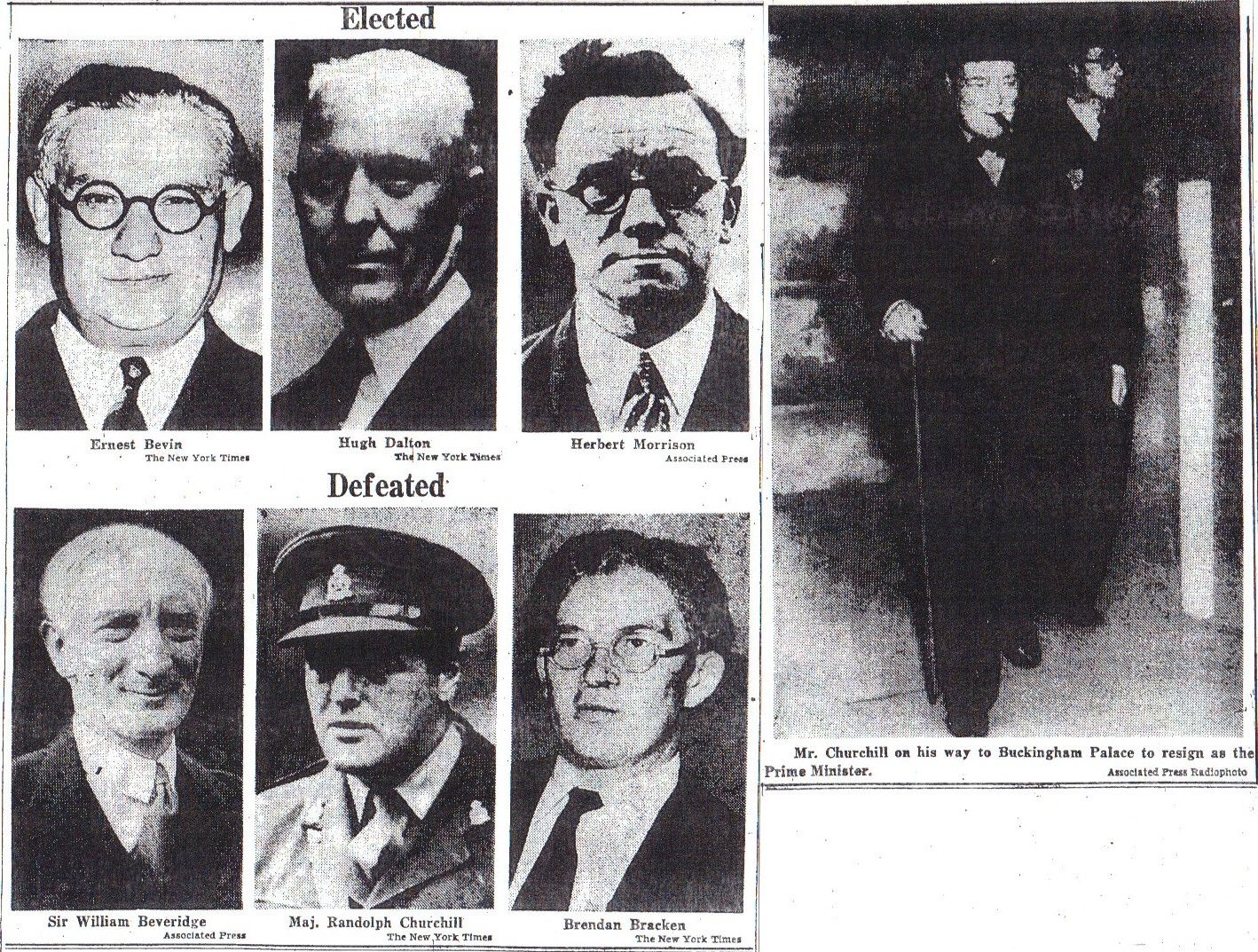
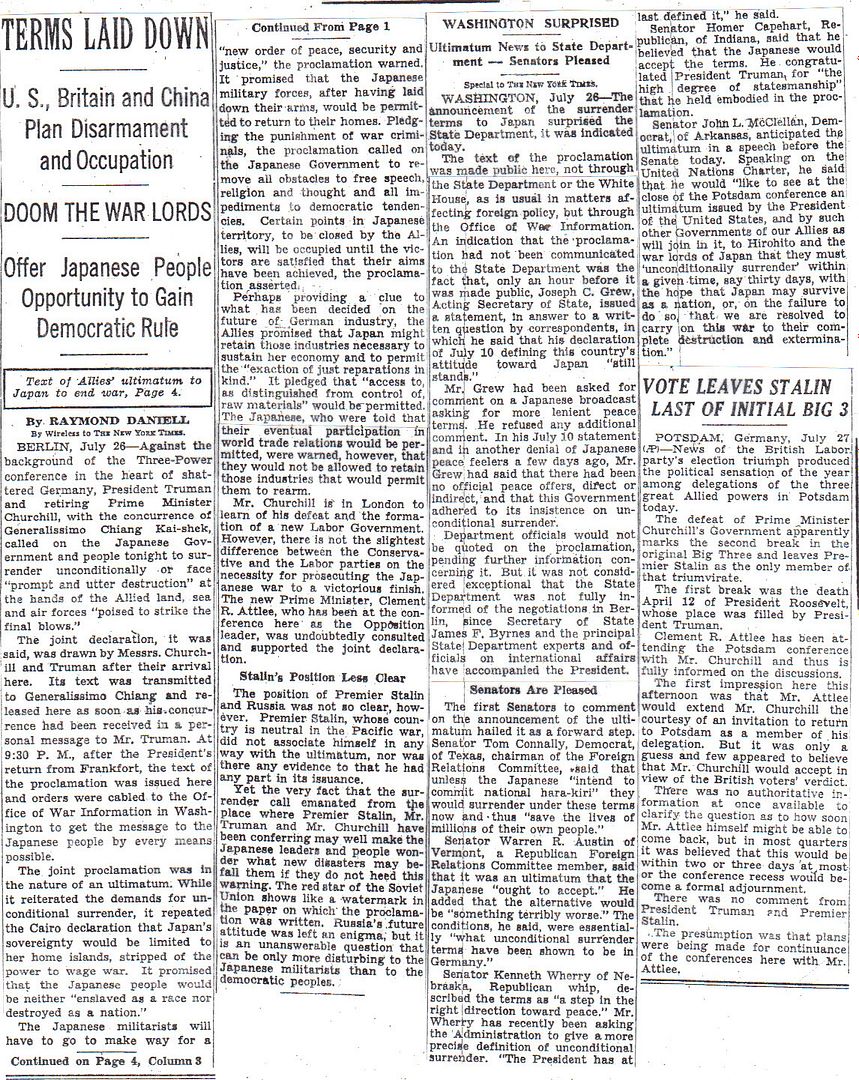
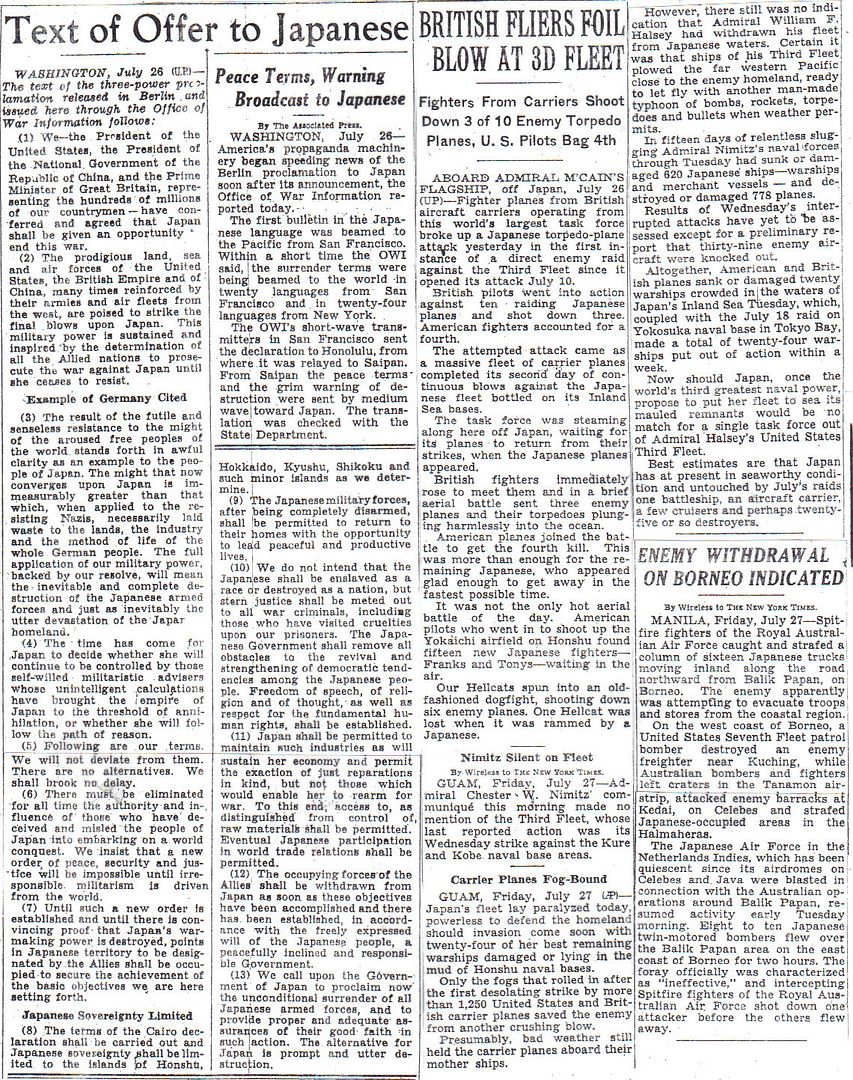
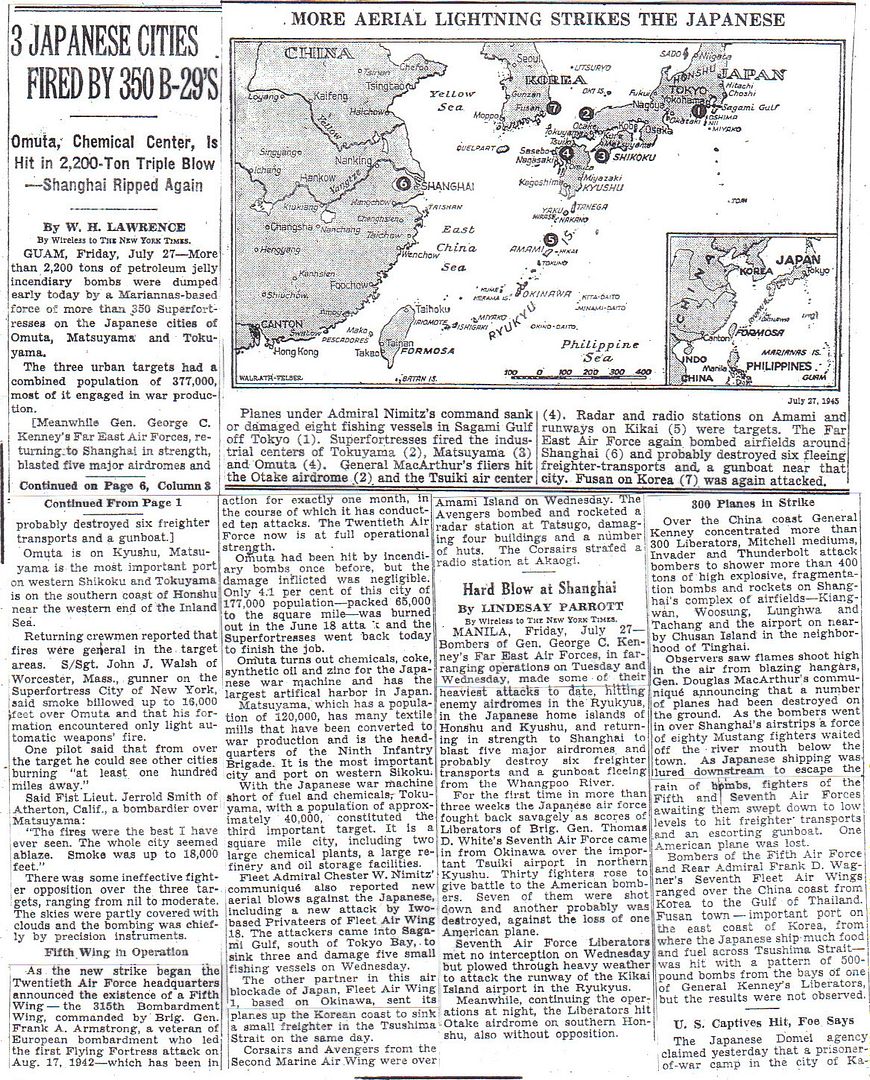
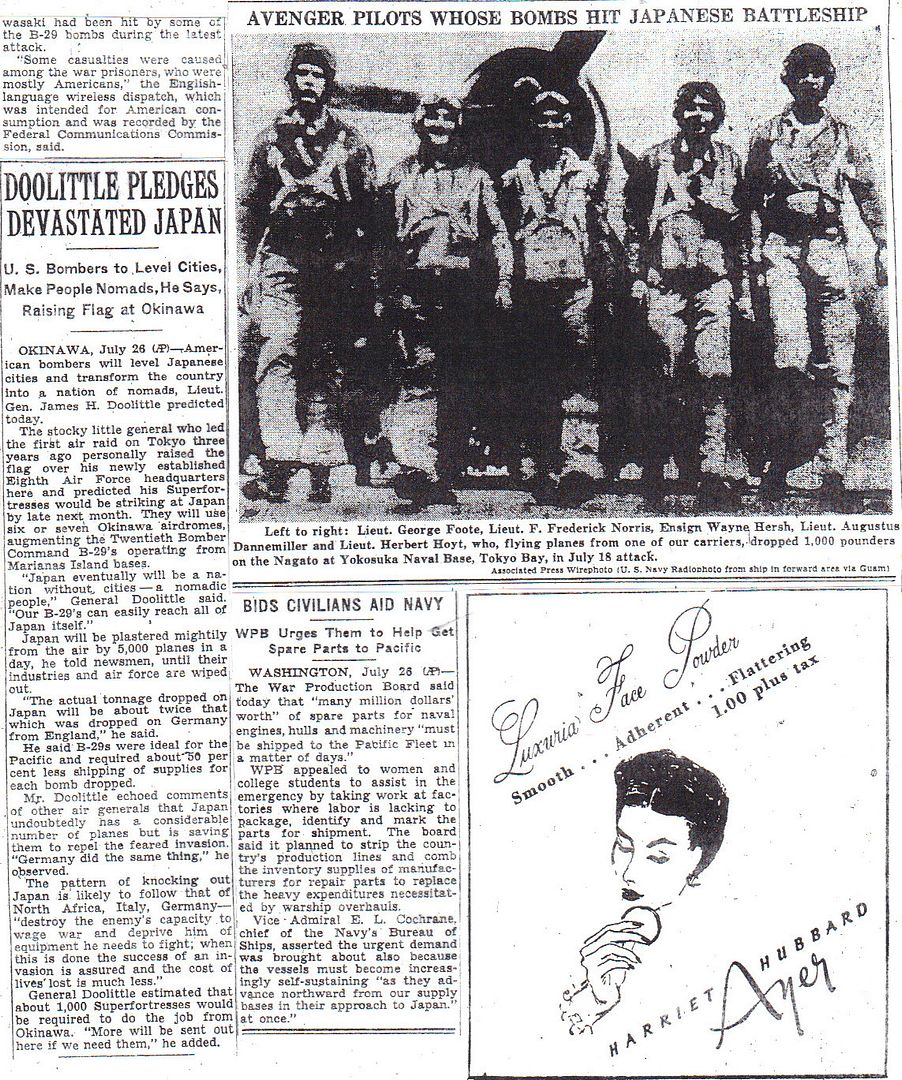
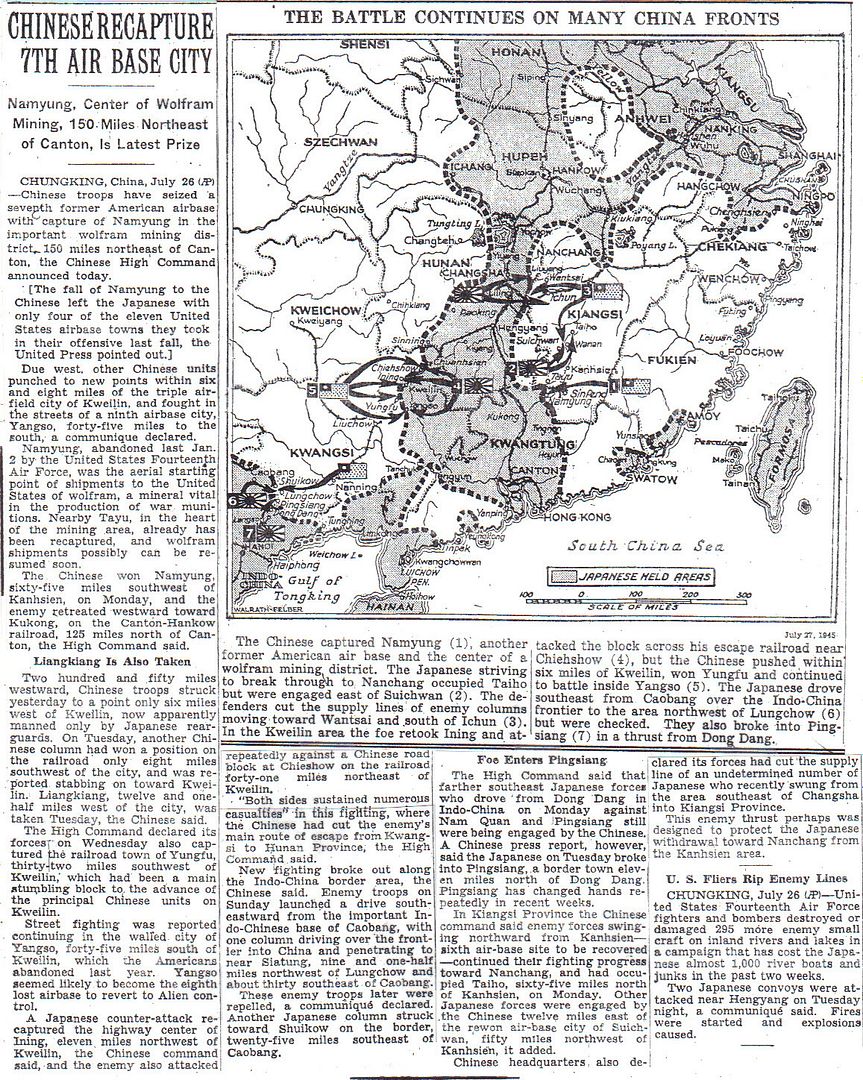
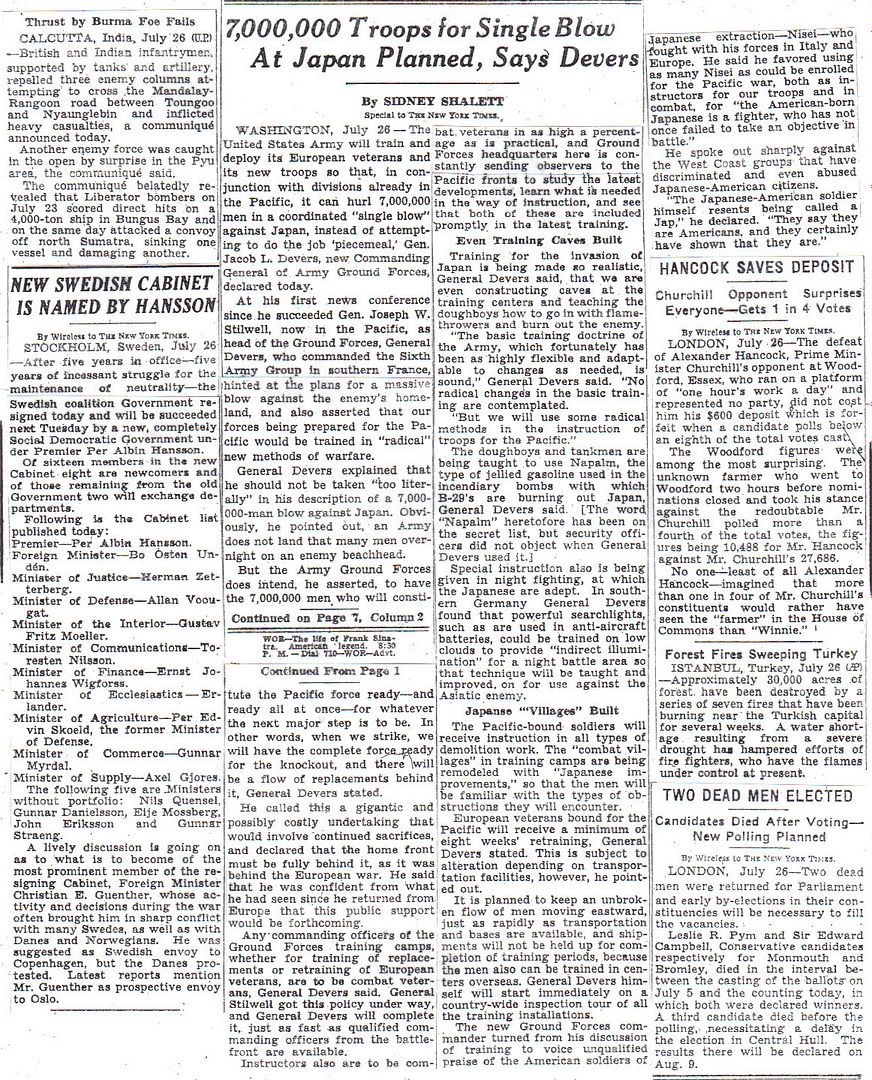
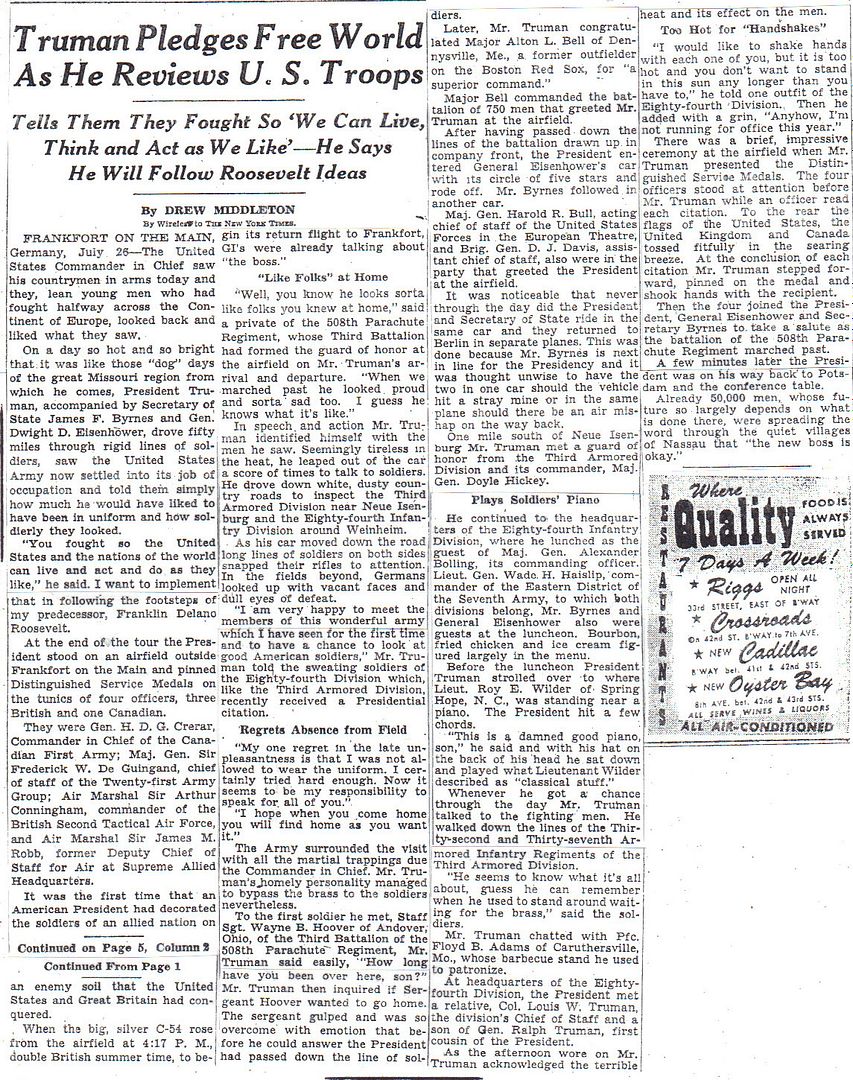
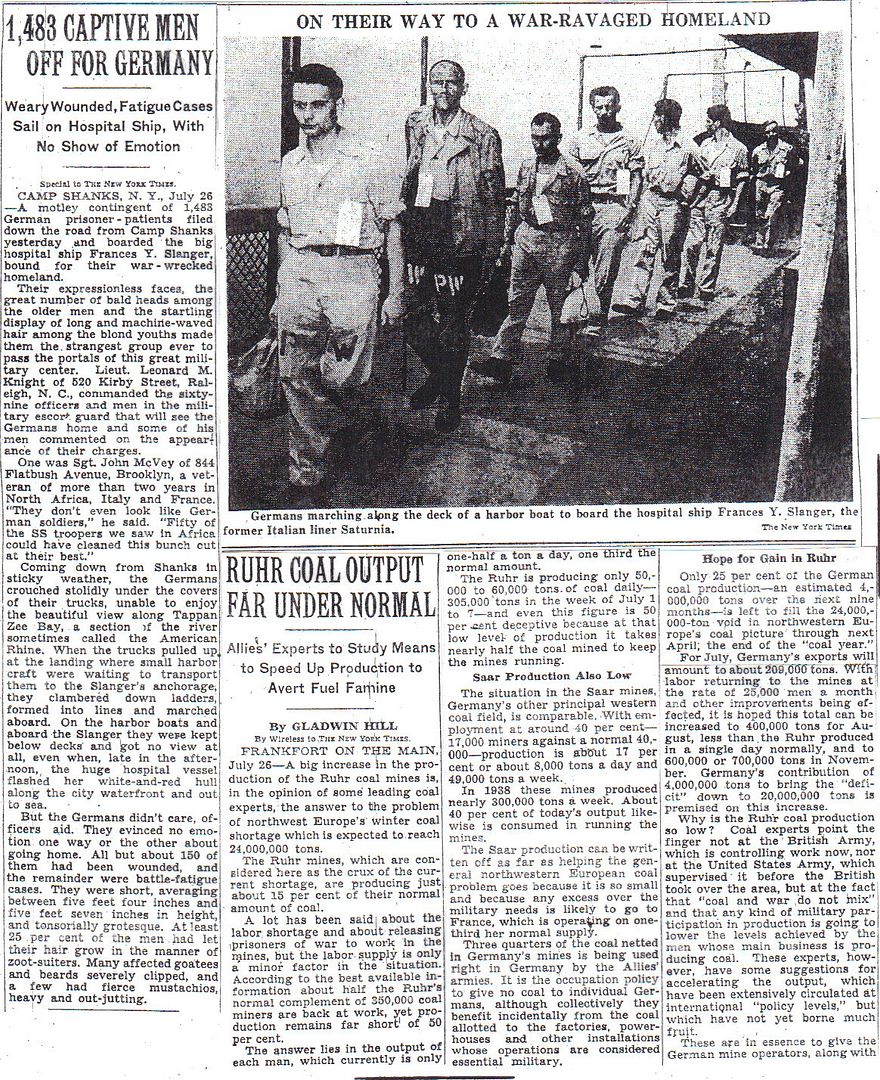
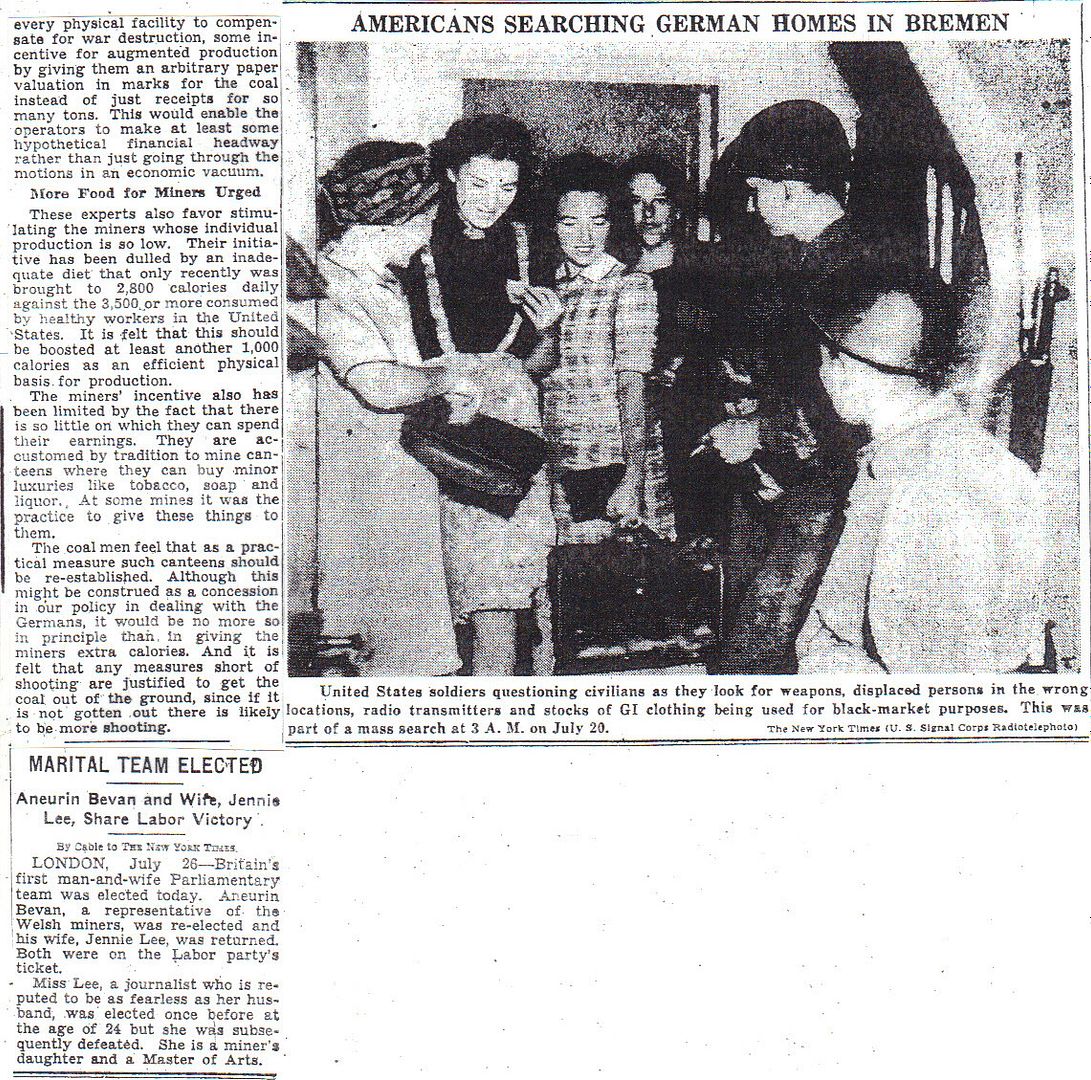
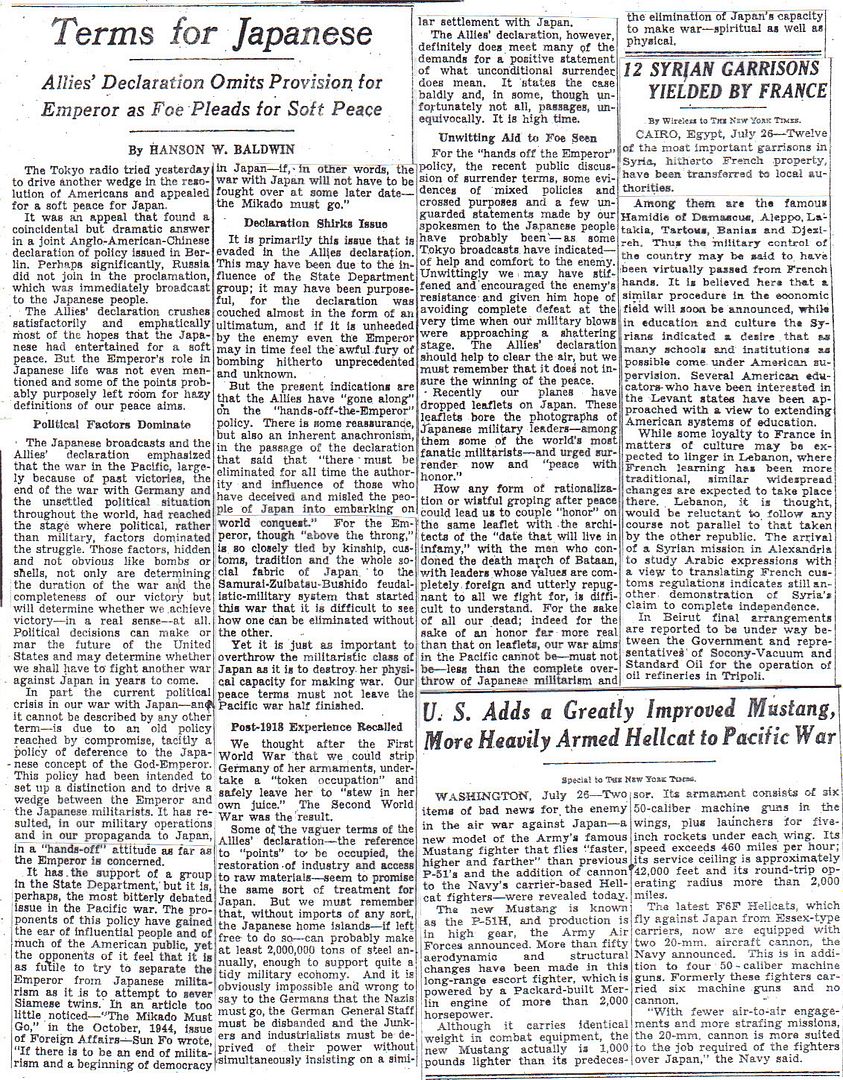
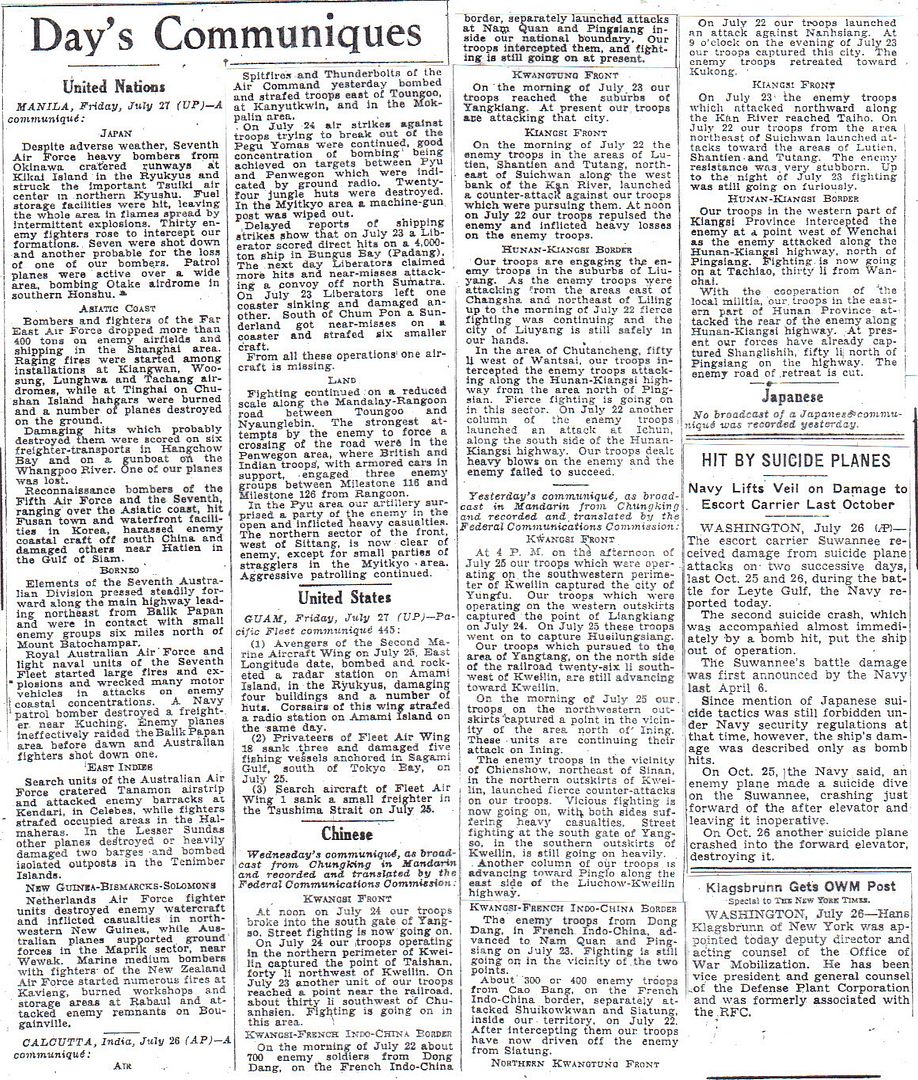
http://www.etherit.co.uk/month/6/27.htm
July 27th, 1945 (FRIDAY)
GERMANY: The Potsdam Declaration calling for the unconditional surrender of the Japanese is delivered to the Japanese government. They ignore the ultimatum and US President Harry S Truman subsequently approves the plans to drop atomic bombs on Japan.
UNITED KINGDOM: Clement Richard Attlee, now 62, got briskly down to business on his first full day as prime minister. He was probably as surprised as much of the nation was to find himself in the job, but he did not show it. Attlee is a calm, undemonstrative and taciturn man. He is probably the most self-effacing tenant 10 Downing Street has ever had. In contrast to Mr. Churchill he will not be haranguing his cabinet, and he intends to run it like an active company chairman and not a dictator.
This quiet, pipe-smoking cricket-loving premier knows his Whitehall onions. Apart from Mr. Churchill himself he is the only politician to have served in the war cabinet from start to finish.
As deputy premier he presided over key cabinet committees and had a pivotal role throughout. At crucial moments he also had an important restraining influence on Churchill. He managed that without raising his voice or ever saying anything more violent than “That’s a bit think, Winston.” The two men have far greater mutual affection that their election campaign insult-swopping suggests, and Churchill does not pretend that he meant it when he quipped: “Attlee is a modest man and he has plenty to be modest about.”
Labour’s leader - one of the public-school, middle-class socialists - drifted into politics through doing good works in London’s impoverished East End.
London: The Chiefs of Staff have their last conference with Churchill.
CANADA: Minesweepers HMCS Comox and Fundy paid off.
Minesweeper HMCS Willow Lake launched Nanaimo, British Columbia.
Cruiser HMCS Uganda relieved by HMS Argonaut and departs for Esquimalt. Preparation for a Canadian all-volunteer “Pacific Tiger Force” for the invasion of Japan provoked a manning review that led to a vote by the majority of Uganda’s crew to return home.
JAPAN: US aircraft drop leaflets on 11 cities prior to targeting them for bombardment. The leaflets say: “Heed this warning and evacuate these cities immediately.”
During the night of 27/28 July, US Twentieth Air Force B-29 Superfortresses fly Mission 296 a mining mission; 24 B-29s drop mines in Shimonoseki Strait, at Fukuoka, Niigata, Maizuru, Senzaki, and in Fukawa Bay; 1 other mines an alternate target; 3 B-29s are lost to heavy flak and 1 crash lands on Iwo Jima and is subsequently scrapped. During the day, 60+ Fifth and Seventh AF B-24s pound a marshalling yard at Kagoshima, Kyushu and 50 escorting P-51s attack numerous nearby targets of opportunity; 150+ P-47s over Kyushu hit communications and industrial targets, including a tunnel south of Kurino, bridges at Okasa, Hitosuse-gawa, and Matsubase, and factories and a power plant at Yatsushiro.
The "anti-Finest Hour" of the British electorate.
And thus, the decline of Britain begins.
It still one of those things I read about that honestly makes me hate those people of that time.
I can only imagine how bitter Churchill must have felt after sacrificing so much of himself for the preservation of the nation only to be booted for promises of free crap.
Couldn’t agree more
Once Germany was no longer a threat to Communism, then anti-communist Churchill had to go.
So, how would the Japenese look at todays headline?
Fascinating history. Thanks. BUMP!
7,000,000 man, single blow attach against Japan planned. If we had gone this route, when would this have happened?
Communists Hail Victory, Promise Support
Churchill offered only “blood, toil, tears, and sweat”.
Labor & Atlee promised relief from all that; wartime austerity & rationing was not lifted until nearly a decade after the war ended.
Look what promises of free stuff have gotten us - more Obama.
Operation Downfall called for landings on Japan in November 1945 (Kyushu, Shikoku) and March 1946 (Honshu).
Americans searching German Homes (at 3am)
This following is a good review. http://www.history.army.mil/books/wwii/Occ-GY/ch18.htm
I had a friend in Toastmasters who was part of the occupation. He would tell stories of supervising German laborers. He had his Germans trained to be on the look out for American officers and bring him his unloaded gun if they saw one. Said most of the Germans were good people but he would never had done such with the Nazi prisoners.
Another occupation story.
I have an interest in jeeps(own too many).
During occupation, they would have the GI’s disassemble jeeps at one depot site. These parts would then be transported to another depot and reassembled. This is part of the explanation why finding a pure ford made jeep with all the bolts stamped with “f” is a rarity.
We offered these jeeps to some if the smaller countries to help with their ag production. They said, fine, we will take your jeeps but ONLY if you give us 50 gallons of gas with each jeep. So they would look for volunteers among the troops to deliver these jeeps. Only about half the jeeps made it to their destination. The other half went on a tour of Europe and were abandoned when the gas ran out..................
Note the article about Ruhr coal and the following from the occupation reference. Notice the discrepancy between shipped and received.
Coal was the key. In July and August, the output was 15 percent of the 1935-1936 monthly average. Every industry restarted increased the shortage. The amounts that arrived were always smaller than those shipped. Of 120 carloads consigned to Nuremberg, 70 carloads arrived. Another 1,000 tons of coal disappeared completely en route from Munich to Nuremberg.29 In his 6 August radio speech Eisenhower told the Germans to cut wood for the coming winter because there would be no coal for heating, and during the late summer and fall military government embarked on a wood-cutting program throughout the zone. The Army supplied power saws and axes and military trucks to haul the wood in areas the German trucks could not reach. Woodcutting progress became a required subject of military government detachment reports, but many detachments found that the idea did not really catch on with the Germans until after the first spell of cold weather in October.
Disclaimer: Opinions posted on Free Republic are those of the individual posters and do not necessarily represent the opinion of Free Republic or its management. All materials posted herein are protected by copyright law and the exemption for fair use of copyrighted works.